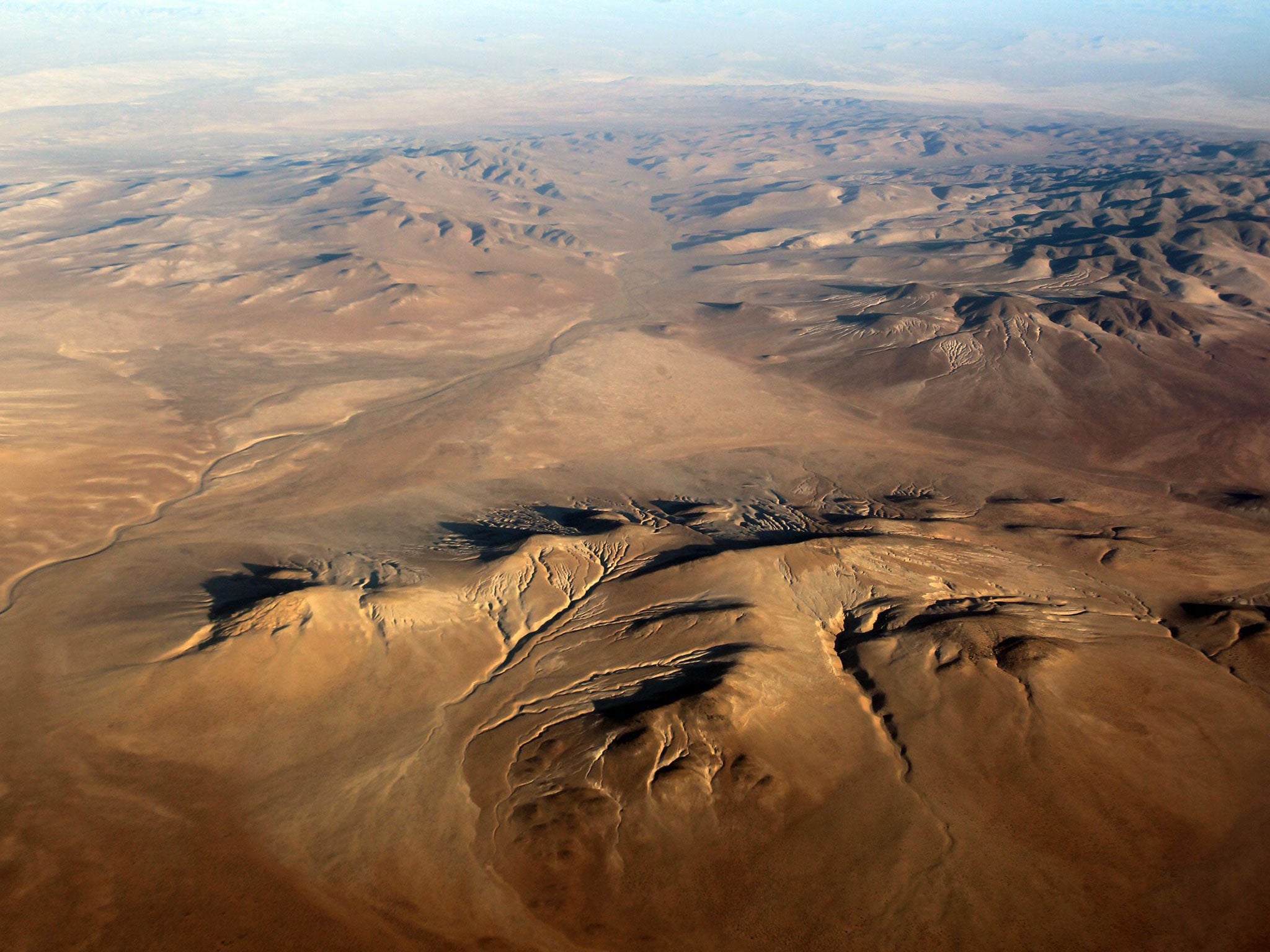Potatoes on Mars: Peruvian team tests if vegetable will grow on Red Planet
The Nasa project could be applied both to an attempt to colonise Mars and, on Earth, to farming in tropical areas hit by rising temperatures and drought

Can Peruvian potatoes grow on Mars? Nasa thinks so.
In a case of science seemingly imitating Hollywood, the space agency has launched a project to see whether potatoes could grow on the Red Planet, one day allowing a human colony.
In a plot that could have been borrowed from the Matt Damon blockbuster The Martian, the US space agency and the International Potato Centre (CIP), a non-profit organisation, will attempt to exploit the expertise available in Peru, home of world’s favourite tuber, a nation of more than 4,000 varieties.
Initially, the CIP will attempt to grow the potatoes in its laboratories in Lima, in conditions simulating those on Mars, including extreme ultraviolet radiation and drastic temperature variations. It will use soil from Pampas de la Joya, an area in the northern Atacama Desert, where growing conditions are close to those on Mars.
The Atacama is the driest place on Earth with less than 1mm of average annual rainfall, while Pampas de le Joya’s unusual geology means that it lacks basic nutrients and is devoid of organic matter. If the lab tests are successful, researchers will then plant potatoes in the desert itself.
The research could be applied both to an attempt to colonise Mars and, on Earth, to farming in tropical areas hit by rising temperatures and drought as a result of climate change. The project is being led by Julio Valdivia, who began his career as a medical doctor, before going on to acquire two PhDs, one in astrobiology and one in space medicine, and joining Nasa’s Search for Extraterrestrial Intelligence programme.
“Why the potato?” asks Mr Valdivia. “Because it has already conquered most of the ecosystems on planet Earth, in a way which no other crop has. It can be grown at altitude or sea level, in the tropics or the cold. It is the most adaptable food staple.”
Other advantages of the potato include its water efficiency, up to seven times more than for cereals such as wheat and corn, whose long stalks would be shredded by Mars’s devastating storms. The potato is also rich in zinc, iron and vitamin C.
Speaking to The Independent, Mr Valdivia calculated that a human could survive on a diet of just potatoes and water for up to a year, although that would only happen in emergency conditions. He praises The Martian as scientifically accurate, with the one exception that on a real Mars mission potatoes would have to be stored differently during the three-year journey across the solar system, including possibly being frozen cryogenically.
Mr Valdivia and the CIP hope to use their research not just for Nasa’s own Mars efforts, but also several other planned missions to the planet, including Spacex, the firm run by US tech entrepreneur Elon Musk, and another ambitious initiative by the United Arab Emirates.
“It may be that vegetables colonise Mars before people do, perhaps with robots tending to them,” Mr Valdivia told The Independent. “We can’t just send people there and then work out what they eat afterwards.”
Mars’s gravity is just one third of the Earth’s. That, along with its atmosphere rich in carbon dioxide but lacking nitrogen and oxygen, means that the potatoes could grow quickly, but be malformed or undersized. The tests will begin with several potato varieties so rare that they have yet to be given names and are identified by numbers, says the CIP’s Joel Ranck. “What we are looking for is ‘proof of concept’,” he adds. “We won’t really know until someone attempts to grow potatoes on Mars. The one thing we can’t test for is gravity.”
Join our commenting forum
Join thought-provoking conversations, follow other Independent readers and see their replies
Comments
Bookmark popover
Removed from bookmarks